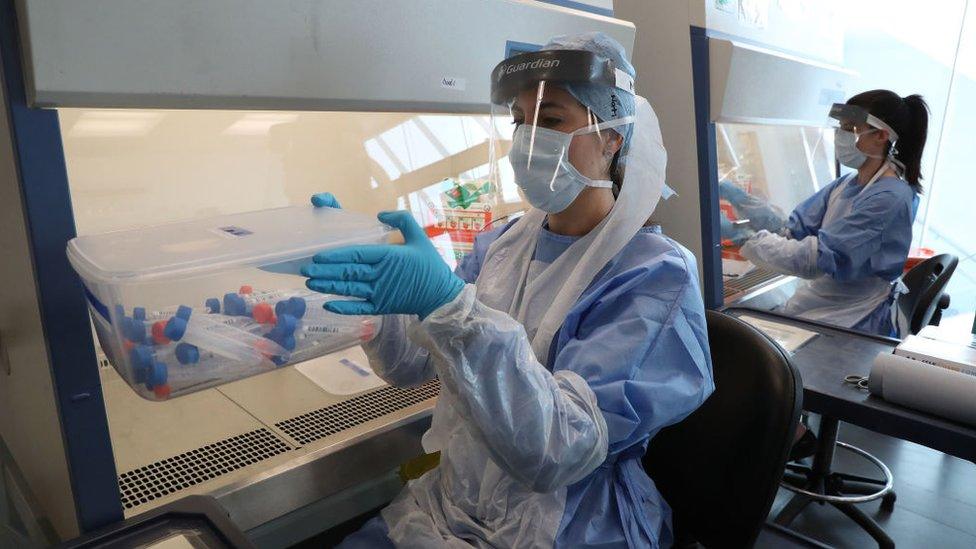Covid in Scotland: Nicola Sturgeon issues warning over tougher rules
- Published
- comments
FM 'gives notice' that greater coronavirus restrictions are likely
"Hard but necessary" decisions on further Covid restrictions may need to be taken to prevent another full-scale lockdown, Nicola Sturgeon has warned.
The first minister said the next few days would be "critical" in deciding which steps would be taken to stop the spread of Covid-19 in Scotland.
She said "greater restrictions" might be needed to "interrupt" that spread.
And she said the introduction of more national restrictions would have to be considered.
Ms Sturgeon said the virus was on the rise and was spreading "quite rapidly".
"If we want to avoid another full-scale lockdown, doing nothing almost certainly isn't an option," she said.
"We have to consider now whether some national restrictions - we have national restrictions in place already, the six-two rule is a national restriction - do we need to have more national restrictions?"
The new rule limiting social gatherings to a maximum of six people from two households came into effect on Monday.
There are currently tighter local restrictions in force in the west of Scotland which prevent people visiting each others' homes.
Tougher rules are being introduced in several parts of England, and the UK government is believed to be considering imposing fresh restrictions on the whole of England.
Ms Sturgeon told her daily briefing that there had been 203 positive tests in Scotland in the past 24 hours, and that one person who tested positive had died. That took the total number of deaths in Scotland under the measurement being used to 2,502.
"The bottom line here is this virus is on the rise again," the first minister said.
"Cases are rising quite rapidly. The percentage of tests is not as high as March but is rising. And the R number is now above one."
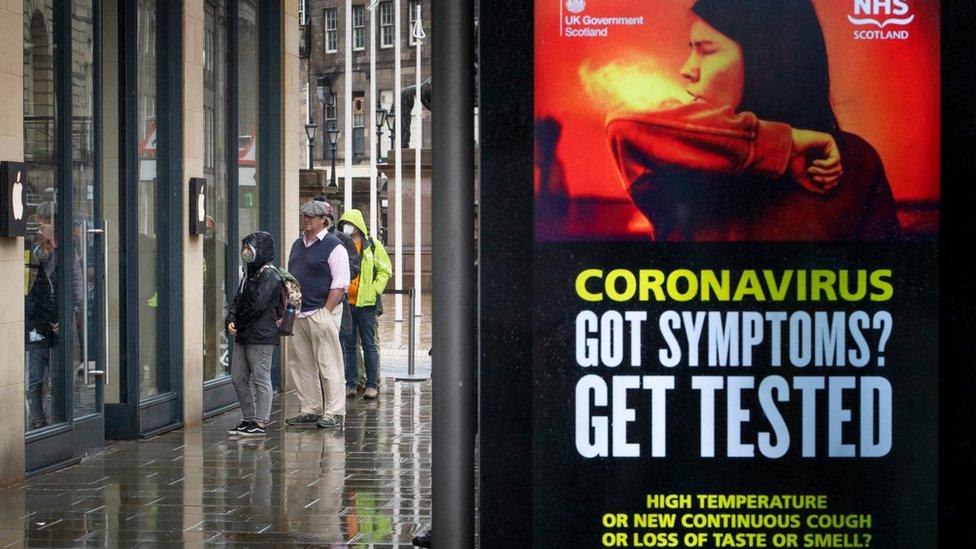
Ms Sturgeon said she had met a group of senior Scottish government officials to assess the situation and that discussions would take place with the four UK nations in the coming days.
She has asked the prime minister to stage a Cobra meeting this weekend, although it is understood that UK government has no plans to hold a meeting.
"The virus could get out of our grip again but it hasn't happened yet and we have time to prevent it from happening," she said. "That is down to the government and all of us."
Ms Sturgeon warned that the country was following the path of France, which four weeks ago was in the same position that Scotland is now.
It is now seeing 10,000 new cases a day, with hundreds of people in intensive care and the number of deaths increasing.
'Break this growth'
"We must make sure we interrupt that and don't end up where they are now," she said. "We are facing the risk again of exponential growth in Covid.
"No-one wants to see another full-scale lockdown.
"And above all we want to keep schools and childcare open because we know how important that is to the education and to the broader wellbeing of children and young people."
Ms Sturgeon asked people to abide by the current rules.
"It may well be that if we are to interrupt and break this growth we will have to do more in the next few weeks," she added.
"This weekend will be critical in the assessment of how best to do that."
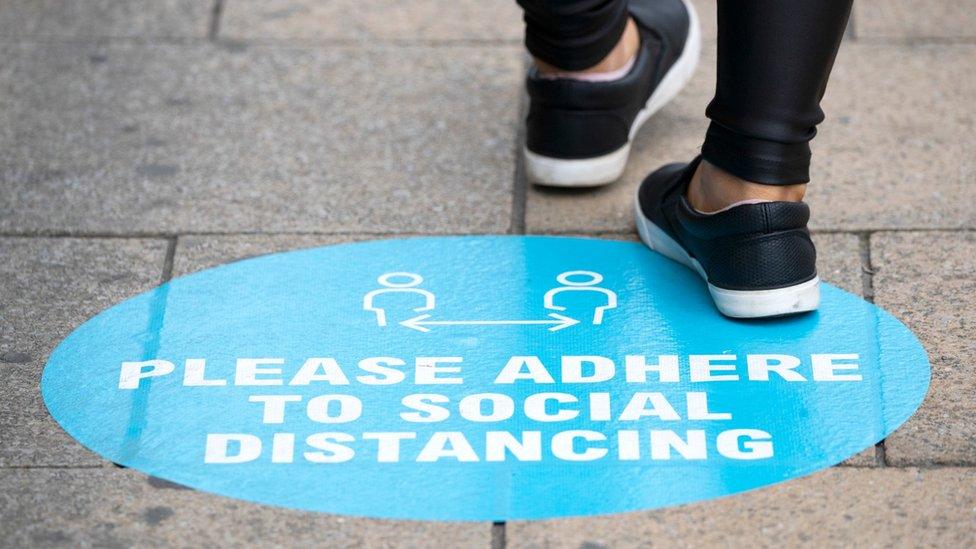
The leader of the Scottish Conservatives said he would support the introduction of any measures needed to help defeat the virus.
Douglas Ross told BBC Scotland that every available option should be considered.
"We have seen the issues that we have if we don't get on top of it, and if we don't make the difficult decisions to reimpose some restrictions," he said.
"So everything that has to be done must be done to ensure we don't get a second wave of this pandemic that puts pressure on our hospitals and our NHS again.
"I support everything that can be done to support beating this terrible pandemic."
Ms Sturgeon has also urged people to take part in a UK-wide Covid infection survey.
Up to 15,000 people in Scotland will be tested every fortnight. Households will be randomly selected for the survey and invited to participate.
Those taking part will do their own tests and some will be asked to provide blood samples.
The tests will continue for up to a year and will help scientists see how many people are infected with the virus over time and how many people will ultimately have the infection.

BACK TO SCHOOL: Can a school insist on a Covid test?
LOCKDOWN EASING: What changes next - and when?

- Published17 September 2020
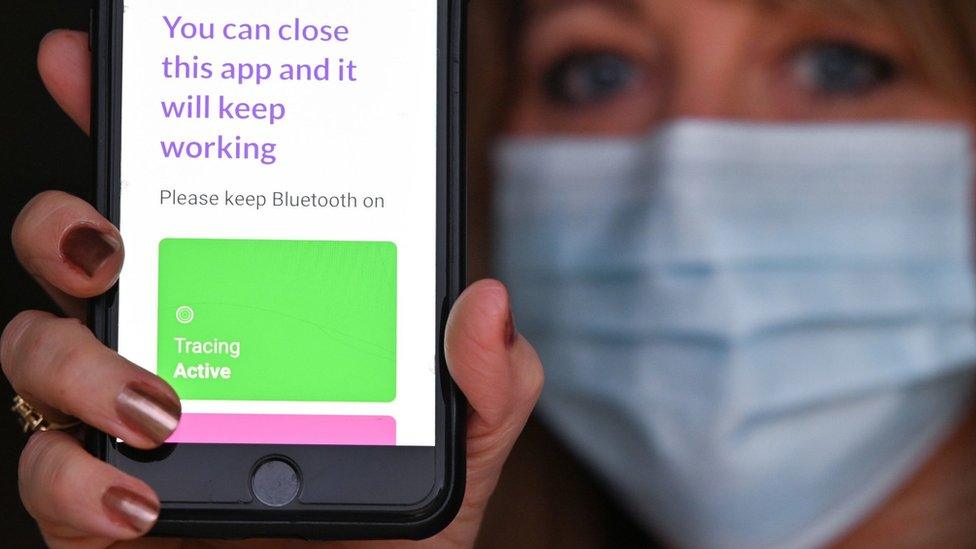
- Published17 September 2020
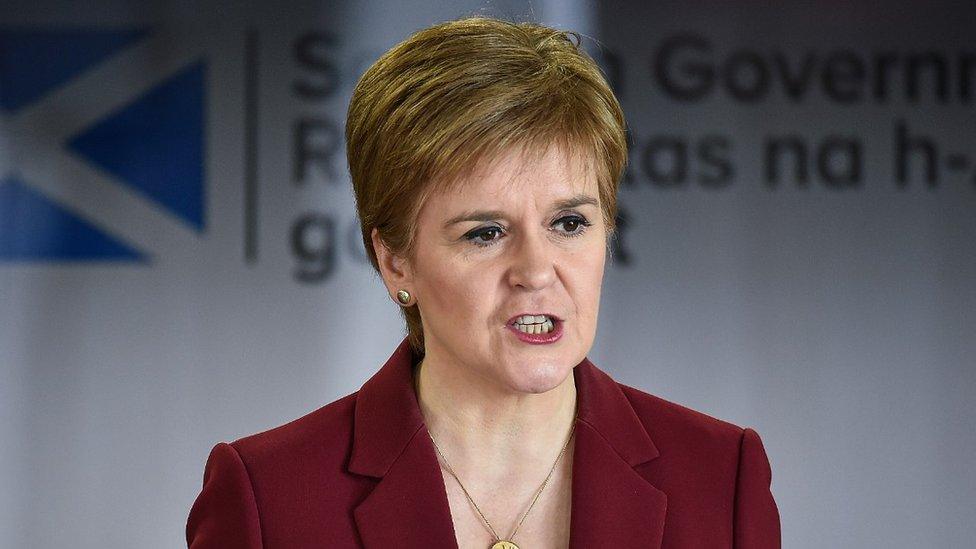
- Published15 September 2020
